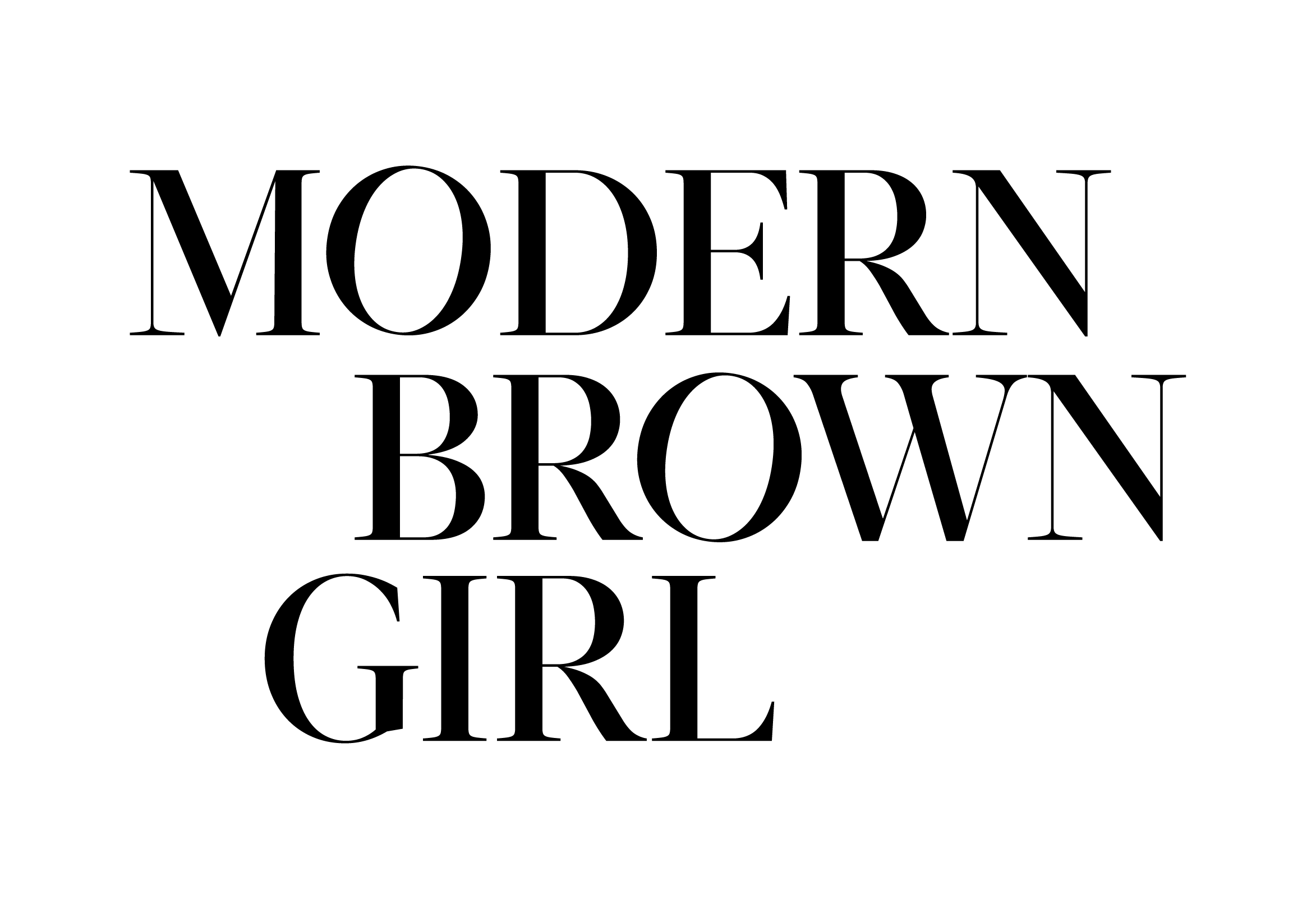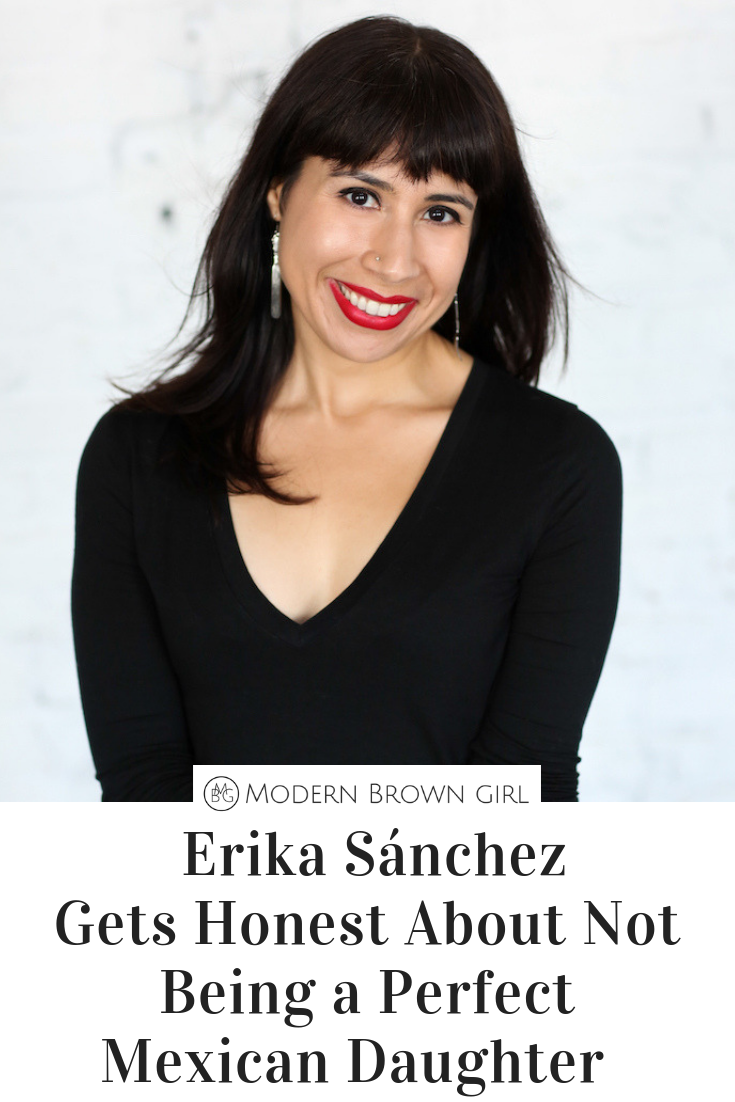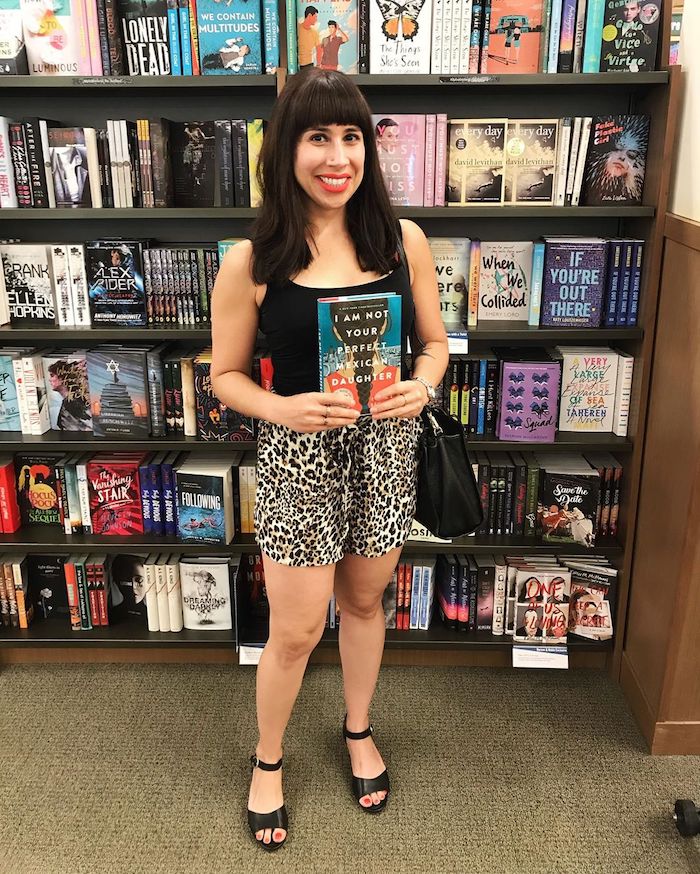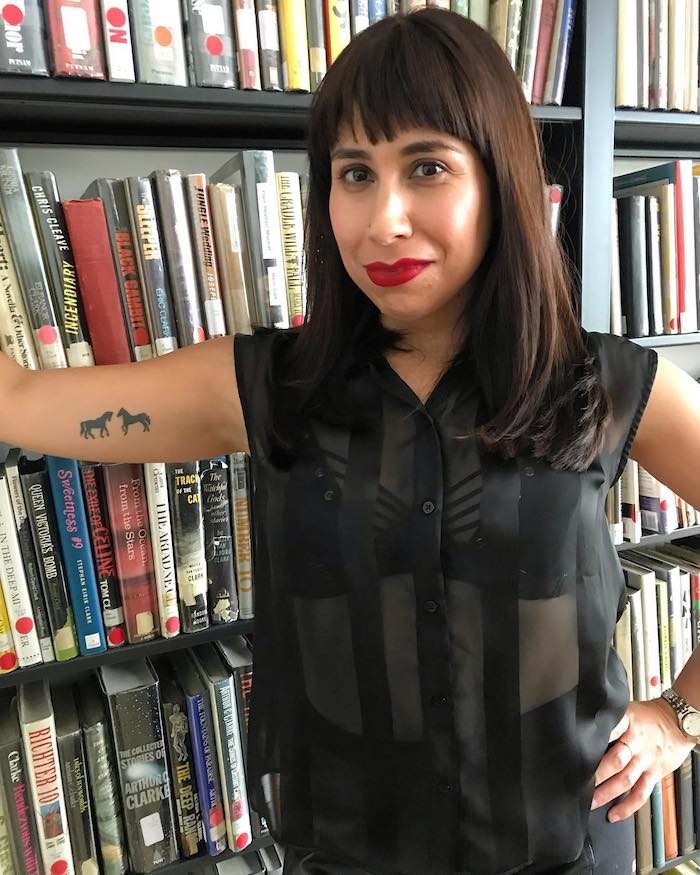Author Erika Sánchez Gets Honest About Not Being a Perfect Mexican Daughter
Erika Sánchez may not be the perfect Mexican daughter, but she is certainly the perfect voice for young Latinas growing up in two completely different and clashing cultures. Her debut poetry collection, Lessons on Expulsions and her New York Times Bestselling novel, I Am Not Your Perfect Mexican Daughter, have no doubt catapulted the refreshingly honest author and poet into the mainstream genre of Young Adult literature. Yet, Sánchez exhibits a profound sense of strength, humility, and vulnerability that makes it even easier to relate to her empowering and universal message to the Latinx community, a message that tells them their voices matter and their stories are valued.
Ahead of the 35th Annual Printer’s Row Lit Fest, in which the process of bringing Sánchez’s debut novel to the Steppenwolf stage next year will be discussed, Modern Brown Girl spoke with Sánchez about her journey of becoming a published writer and how she is learning to manage obstacles — from both her inner and outer worlds.
You were born and raised in Cicero, Illinois. Tell us about your childhood experiences as the daughter of immigrant parents.
My parents were undocumented when they got here from Mexico and they had a lot of [financial] pressure. It was challenging in many ways, but I feel like my childhood prepared me for the world. I learned the Mexican work ethic very early on, so I feel like that resilience is something I carry with me. I was always a very unusual child and my parents never knew quite how to handle who I was. That was really difficult often times because I was very Americanized and my parents were very traditional, so we butted heads on many issues, especially on gender norms. I always questioned why my brother didn’t have to do the things I had to do, or why he was given more liberties than I was. I didn’t agree with how I was being raised.
When did you fully realize your passion for writing? How did your parents react to your career aspirations?
I discovered I wanted to be a writer at the age of 12. I was reading Edgar Allen Poe in school and it was such a magical experience to read poems out loud. I loved his imagery and was enchanted with the work, so I decided I was going to be a poet. It’s kind of a strange dream for a young child of immigrants to choose a career that’s so obscure and so difficult when our families struggle financially to go into a career that has no stability and no guarantee. It was unusual and my parents were perplexed, they just wanted me to go to school, work in an office and not have to work in a factory. Higher education and going to college was not something they’re familiar with, but they did encourage us to do well in school. It wasn’t until my books came out that they understood what I was doing this whole time. That has been very satisfying, for them to see what I was aiming for and that I’m successful and financially independent. They’re very proud of me now.
What was your first job out of college? How did you land it?
After college, I had a Fulbright Scholarship to Spain and I lived in Madrid for a year [that] included a teaching assistantship. I taught junior high English and assisted the teachers in their classes. That was challenging in many ways; the children were very undisciplined, so it was hard for me to be able to teach them when I wasn’t their actual teacher. But what I loved most about being in Spain was taking a poetry class at a local organization. I met so many different people and we worked on poems, we’d go out after class and keep talking about poetry, and it was a really beautiful time. After that, I went to grad school for my Masters of Fine Arts in Poetry in Albuquerque, New Mexico, and then I had a series of office jobs. I was very frustrated for many years, not knowing where my career was going. But I kept writing at home on the side and continuing my craft, even though I felt like it was going nowhere. Eventually, it paid off.
How did you go from writing your own blog to being a published author?
I just did it because I felt very unfulfilled in the work that I was doing because it [the blog] was a way for me to vent. I didn’t realize that it was so popular and people really enjoyed it. It was creating a space that wasn’t there, writing about being a brown girl struggling in adulthood. Many times it felt pointless writing and not getting paid, but then I started to get noticed by certain publications, like Cosmopolitan for Latinas. I became a columnist because they thought I was funny. I started writing for free for some websites, and then I started writing for bigger publications like NBC News, The Guardian, and Rolling Stone. It was a long journey to become a published author.
What’s the best career advice you’ve ever received?
I learned from my mentors that it’s really important to build communities and support other writers. I think it’s critical to uplift others as we climb because we can’t do it on our own. It’s impossible.
What advice would you give to your 21-year-old self?
Be your own friend. I think young women don’t learn that enough. And enjoy [your] own company.
If someone wants to work in the same field (writing) as you, how should they go about starting their career? What got you to where you are today?
I think it’s important for women to always ask for what they want because otherwise, no one will give it to you, especially if you’re a woman of color. No one’s just going to hand you things, so if you want something you have to work for it and ask for it. We need to learn how to be assertive and unapologetic in asking for what we deserve. Always ask for more money than you’re offered, learn how to negotiate, be firm and [don’t] be embarrassed to talk about money. I had a lot of failures and disappointments. I had to work jobs that I did not enjoy, there were so many obstacles along the way. But I think the key in any career — especially in the arts — is that you have to accept that you will be rejected and that it will happen frequently. Not everyone is going to love your work. You have to accept that and then do the work regardless. Know that someone will love your work and will believe in it. Resilience is really important because it’s easy to give up after a few rejections. If you really believe in the work that you’re doing, just keep going. I don’t think that’s something that everyone has the capacity for because it’s very draining and hurtful at times to have a piece of you be shunned, to have something that you worked so hard on be misunderstood or disliked. It’s important to love the work above anything else. If you don’t love it, it’s not worth pursuing.
Do you have any role models? Why and how have they shaped your life?
I have many! People that I know in real life and people that I don’t. I have a few mentors that are really important to me. One of my good friends, Rigoberto González, is an incredible writer and taught me about community and supporting other writers. He embodies that spirit, and I really admire him for it. Sandra Cisneros is a great friend and mentor as well, and she’s very supportive of my work. She paved the way for people like me, and I wouldn’t be here today if it weren’t for her and her generation. A friend of mine and poet, Eduardo Corral, has also given me great feedback on my work. And people that I’ve never met, [like] Sor Juana Inés de la Cruz, Emily Dickinson, and Virginia Woolf.
When it comes to being a writer: what are you most insecure about and what are you most confident about?
I am very meticulous about my work. If it’s not transcendent for me, I won’t publish it. I take a really long time in finishing up a piece of work because I am extremely demanding of myself, so if something isn’t excellent then I don’t want to put it out into the world. As far as what I’m confident about, I think people respond to my work because of its honesty and its insistence on the truth. I feel like I’m pretty fearless when I write. I don’t care about ego, about looking bad or good. For me, what’s important is the work itself and not how I come off.
The title of your novel, I Am Not Your Perfect Mexican Daughter strikes a chord with so many Latinas. Why do you think that is?
Many of us grew up having difficulty with our parents’ culture because it’s very different from our own. It’s hard to understand each other when we grew up in very different worlds. It’s a common story for a lot of Latinas, especially rebellious ones who question gender norms and traditions. It’s a story that is not told enough, and I think that’s why it has resonated with so many people because we are not allowed to have our stories told. The House on Mango Street is as old as I am, but why has it taken this long for there to be another book [like that]? There are many challenges for Latina writers but we’re not given the platform that we deserve. It’s frustrating because there are so many people who have these stories and we are just not allowed in the mainstream.
You and the main character of the book both suffer from depression. What do you think the Latinx community gets wrong (or right) about depression?
I think most people get many things wrong about depression. It’s something that is not discussed in our inner circles. It’s something that is misunderstood, and that’s one reason why I talk about it so often in my writing and my life. People think that depression is sadness, or that you can get out of it with positive thinking, and that’s just not how depression works at all. It is an imbalance in your brain that often requires medication and therapy. It’s complicated and people just don’t know enough about it to make informed opinions, so it’s important that we keep having these conversations, as difficult as it may be. A lot of people suffer from this and they’re not being treated; there are not enough Spanish-speaking therapists, people don’t have insurance. There are just many obstacles to mental health and it’s something that really troubles me.
How does depression influence your writing? How has it influenced your day-to-day?
One of the ways that I cope with it is through writing. I’m able to take something that is very difficult in my life and make it into art, and it gives me a lot of joy and meaning to be able to reach other people that experience similar feelings. That’s really important to me. As far as my day-to-day, It’s something that I have to manage and treat. I have to go to a doctor every two weeks, take medication, have other forms of therapy. I run, I meditate. I’m Buddhist, so I chant. I address it on many different sides so it’s a holistic approach. A lot of people don’t understand that sometimes you just need medication. It’s something that is beyond you, and that’s something that I try to emphasize. It’s not a choice. No one wakes up and wants to feel like shit. That’s not how we operate.
It’s definitely about lifestyle changes, right? Little things can really make or break you in having a mental illness.
Yeah. Having jobs that were unfulfilling to me was really bad for my mental health. And now that I get to live exactly the way that I want to live, it has really changed the way that I feel. I’m so much happier. I’m doing something that matters, something that I find meaning in, and it brings me a lot of joy.
Your book is being adapted for the stage, to premiere at the Steppenwolf Theater in 2020. What has that experience been like?
Isaac Gomez, the playwright, is really incredible. I’m excited to see what he’s done. He has been asking really great questions, so I have a lot of faith in him. I’m so honored, it’s a dream.
What does a typical day look like for you?
My days vary, but I like it that way. I have a restless spirit, so I travel a lot. When I’m home I rest a lot because I think that’s really important. I also read a ton, spend a lot of time walking and thinking, going to museums, listening to music. I like to have long, winding conversations with interesting people and friends or at coffee shops. But writing is always at the center of my life, no matter what I’m doing.
Sánchez has recently moved back to Chicago and is currently working on her next book of personal essays, titled “Crying in the Bathroom”. Get your copy of Sánchez’s New York Times bestselling novel today.
I Am Not Your Perfect Mexican Daughter
By: Erika L. Sánchez
Feature Image Courtesy of: Robyn Lindemann





Dulce is an educator, writer, daughter of Mexican immigrants, lightworker, and bruja from Chicago. She believes that you can find magic within yourself at all times, and her life mission is to stay centered in love. Follow her adventures on Instagram at @writtenbydulce.